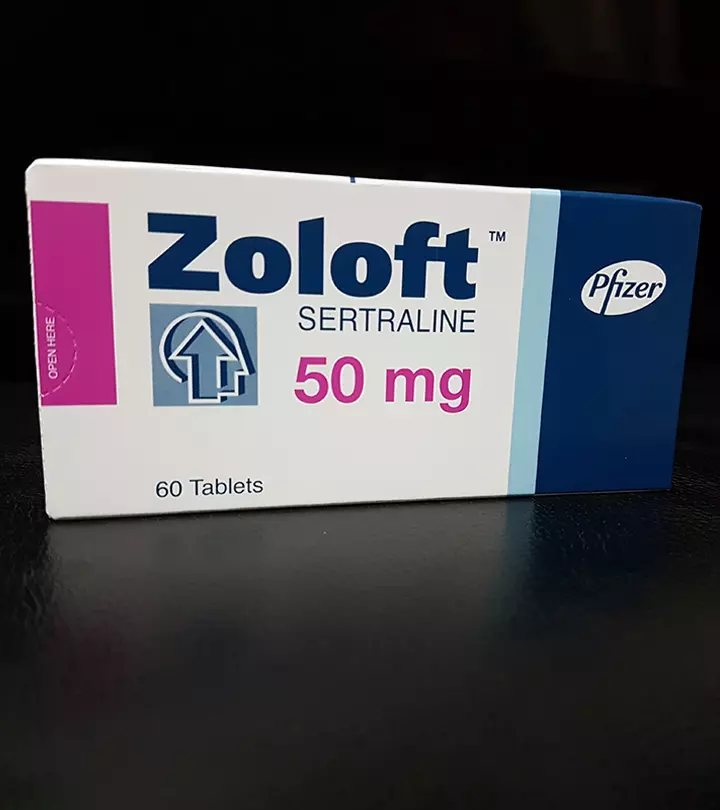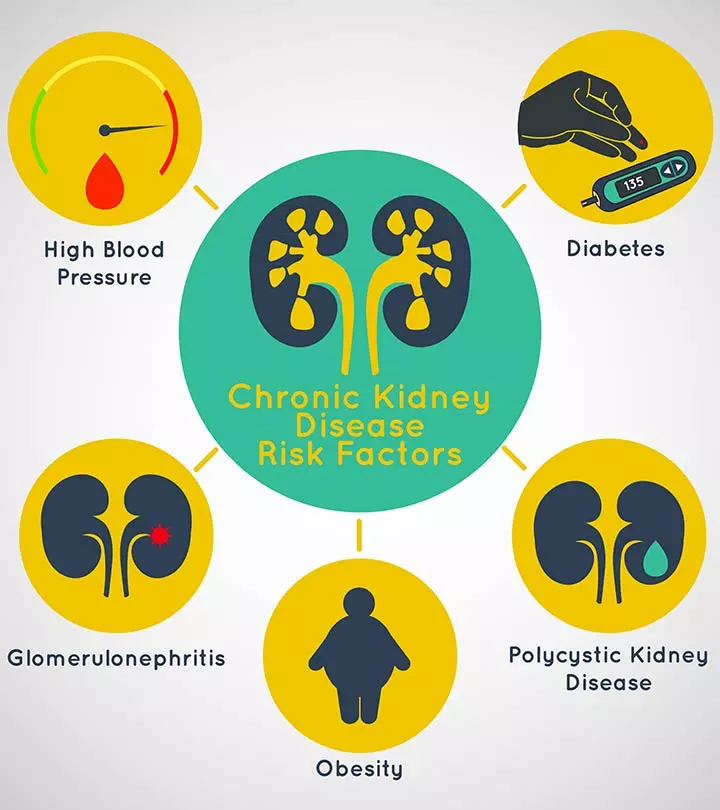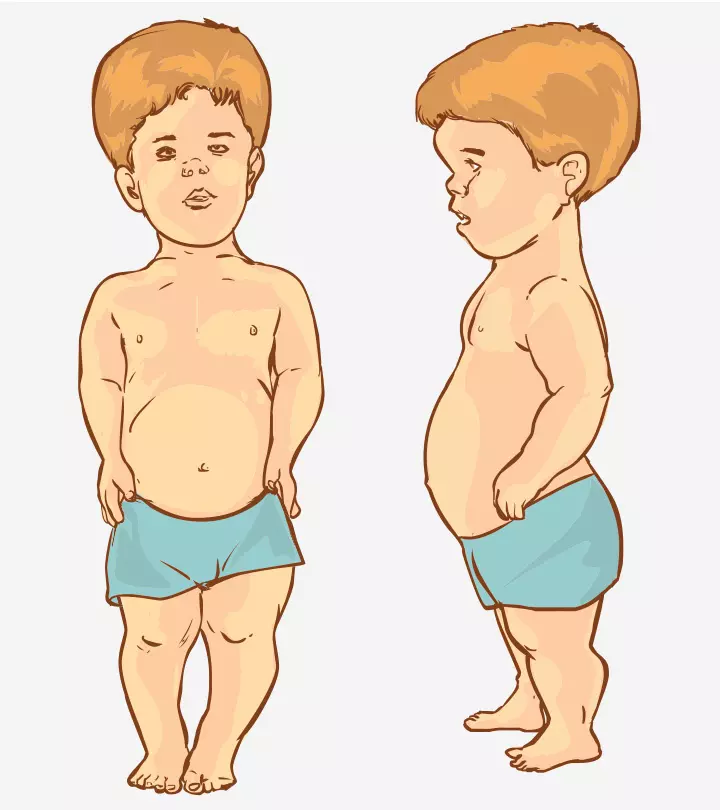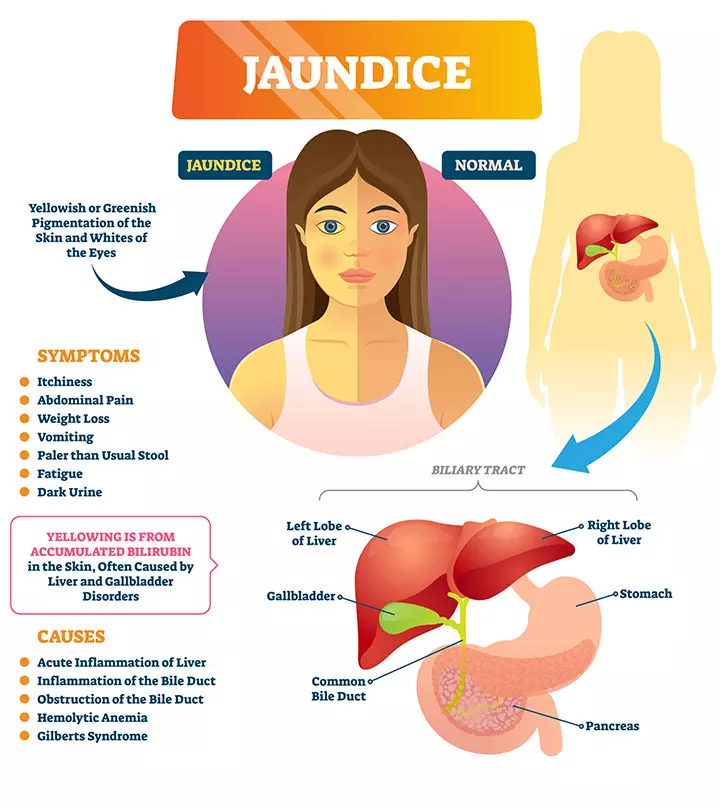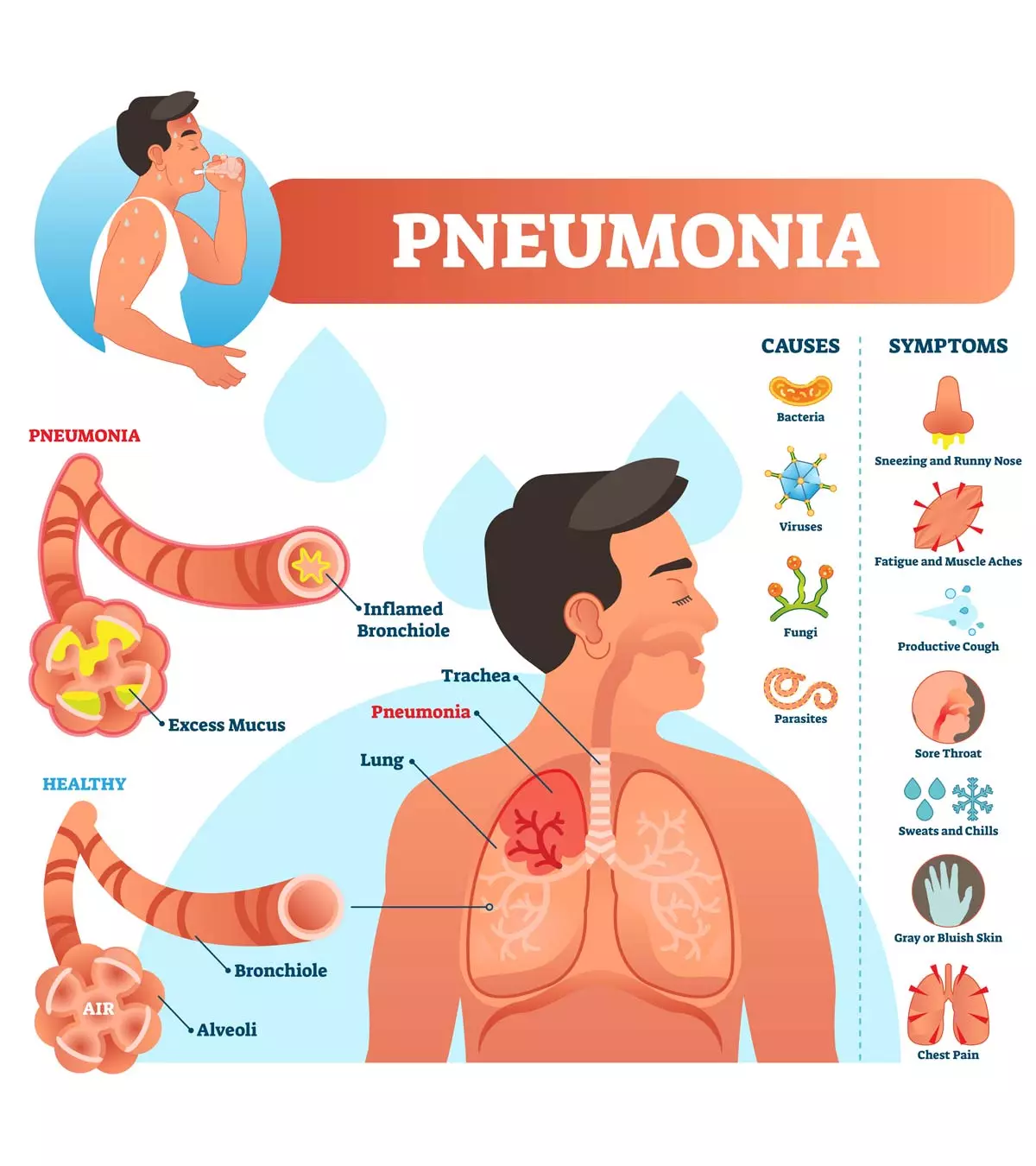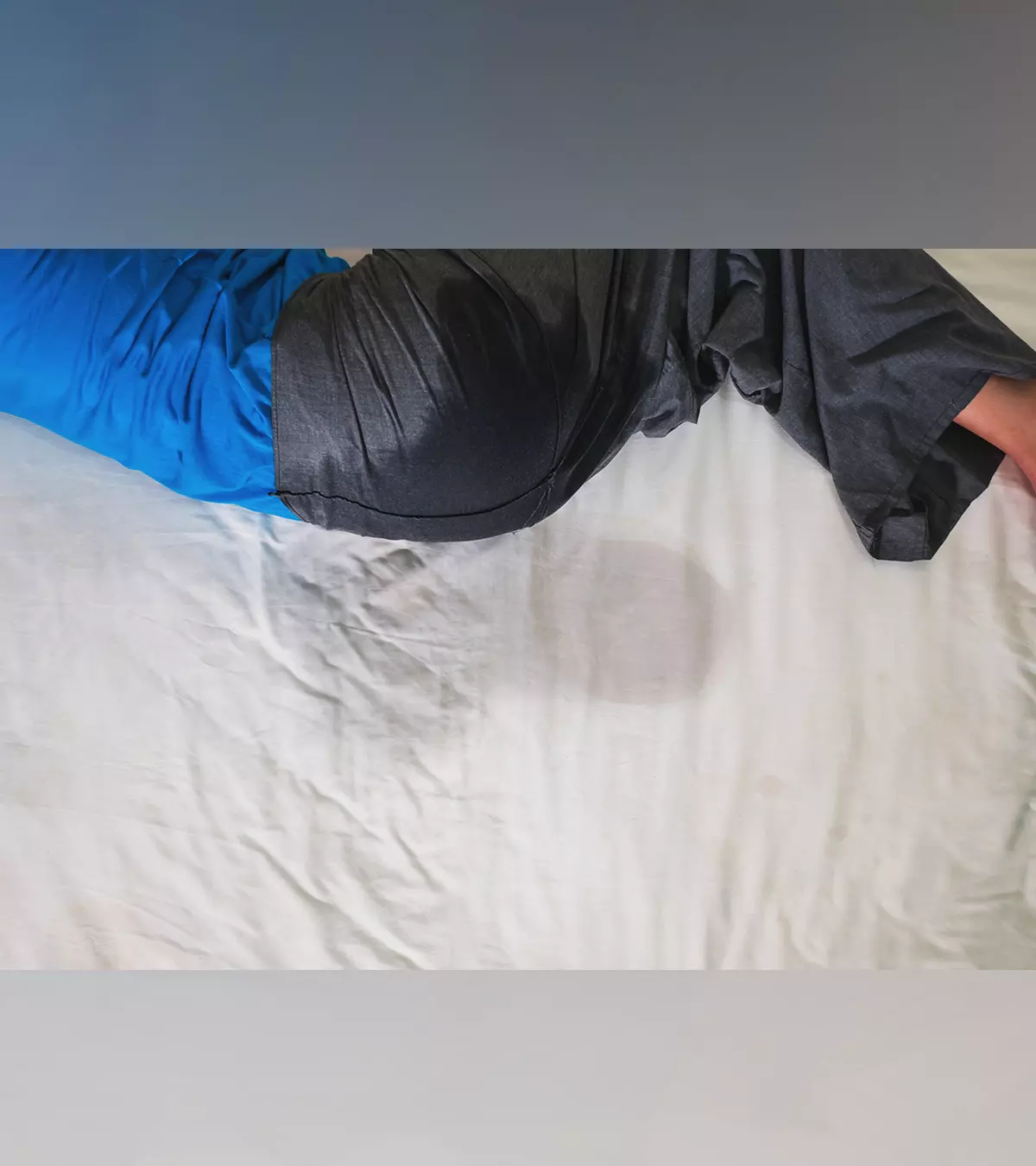
Image: iStock
The American Academy of Pediatrics opposes the use of weight loss pills for teens and adolescents without a doctor’s prescription
. Hence, teens should not use weight loss pills that can be purchased over the counter or online.
In the US, the prevalence of obesity was 19.7%, affecting around 14.7 million children and adolescents, according to the National Health and Nutrition Examination Survey (2017-2020). Being overweight and obese puts children on the brink of several health risks. But using weight loss pills or medicines may help resolve health issues caused by being overweight or obese. However, it is essential to understand that weight loss pills cannot replace a healthy diet or physical activity but may work as an adjunctive therapy (1) (2).
Read this post to learn about the types, usage, risks, and precautions for teen weight loss pills.
Key Pointers
- According to the US Food and Drug Administration (FDA), teens should take weight-loss pills only after obtaining a prescription from a healthcare professional.
- These pills may cause complications such as heart problems, abdominal tract issues, and stroke.
- If your teen takes any other medications, inform your doctor to ensure they won’t react with the diet pills.
Do Weight Loss Pills Work On Teens?

Image: IStock
Prescription weight loss medications may work in cases where lifestyle changes alone are insufficient or ineffective for optimum weight management. Doctors may usually prescribe these medications to those who:
- Are overweight and have additional health problems such as high blood pressure or diabetes
- Have a genetic condition that causes obesity
Weight loss pills are prescribed in conjunction with other lifestyle-related interventions, such as dietary changes and adequate exercise
. The doctor may prescribe other medicines, too, depending on the underlying cause of obesity or being overweight.
Non-prescription or over-the-counter (OTC) products, such as appetite suppressants and water-loss pills, are not recommended. These have no proven benefits and may cause serious adverse effects on one’s overall health and wellness (1) (3).
What Are The FDA-Approved Weight Loss Pills?
The US Food and Drug Administration FDA has warned against miracle weight loss products available without a prescription
(4). However, a few FDA-approved weight loss medications are available on prescription (5).
- Orlistat: It is approved for long-term management of obesity in teens (12 years and older). It inhibits gastrointestinal lipases (enzymes that break down dietary fat for absorption and transportation) and reduces the absorption of about a third of the fatty acids consumed via food.
 Point to consider
Point to consider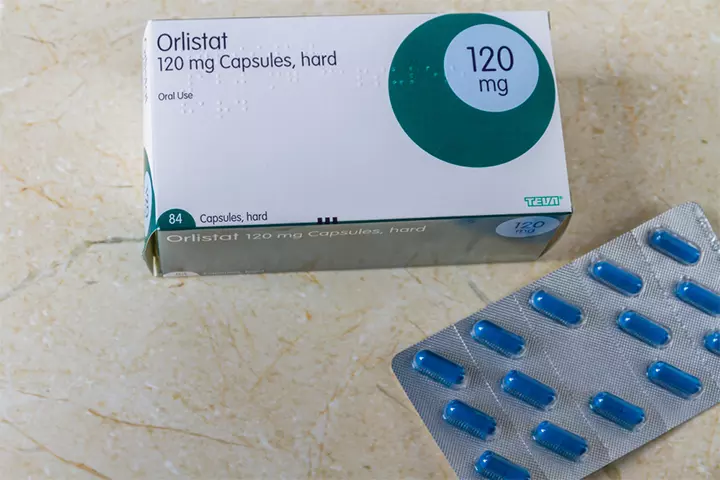
Image: Shutterstock
- Phentermine: It may be prescribed for short-term use (12 weeks or less) in teens older than 16 years. It acts by increasing catecholamines and serotonin activity in the central nervous system to suppress appetite.
A drug named Liraglutide has been recently approved for chronic weight management among adolescents aged 12 years and older, but it is available as a shot and not as a pill
.
 Quick fact
Quick factWhat Are The Side Effects Of Weight Loss Pills In Teens?

Image: IStock
The approved weight loss medications may have the following side effects (1).
Orlistat
- Abdominal pain
- Gas
- Diarrhea
- Leakage of oily stools
Phentermine
- Constipation
- Dry mouth
- Dizziness
- Taste changes
- Sleep problems
Weight loss pills available in stores or online may contain a mixture of herbs, chemicals, and other undisclosed ingredients that can affect different body functions, including metabolism. FDA has found weight loss supplements tainted with controlled prescription drugs, such as sibutramine (appetite suppressant that has been withdrawn due to heart issues), fluoxetine (antidepressant), and triamterene (diuretic). Many of these products are available under the name of natural dietary supplements for weight management and may have adverse effects such as (1):
- Heart problems
- Increased blood pressure
- Palpitations
- Stroke
- Seizure
- Liver failure
What Precautions Should Teens Take?
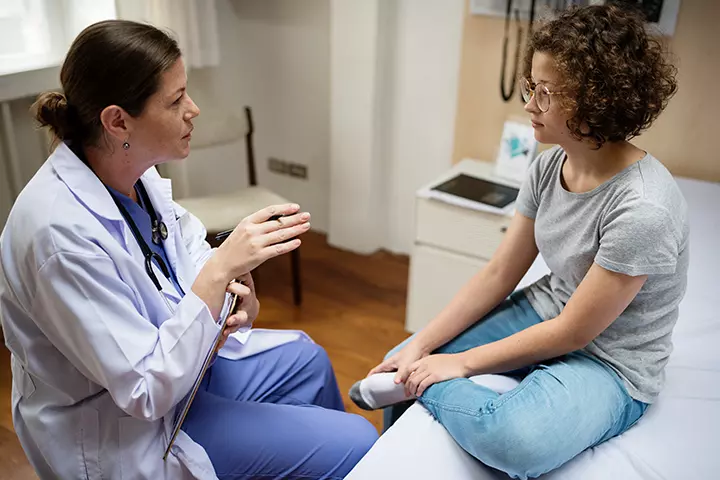
Image: IStock
The following precautions should be kept in mind by teens and their parents before and during the use of teen weight loss pills (5).
- Never take weight loss medicines without getting a doctor’s prescription.
- Tell the doctor about any medicine your teen is taking since certain compounds in it may interact with weight loss pills.
- Check with the doctor and the pharmacy if the medicine is FDA-approved and does not contain undisclosed ingredients.
- Do not skip a dose. If the teen skips the dose, move to the next one or contact the doctor to know more.
- Do not let the teen have more than the prescribed dosage. Administration of more pills will not lead to faster weight loss and, instead, could cause severe side effects.
- Keep the medicine out of the teen’s reach. If the teen is old enough to self-medicate, you may give them the pills they need for only a day’s dosage.
- Some teens may perceive weight loss pills as an easy shortcut to weight loss. Therefore, ensure the teen follows other interventions, such as developing healthy lifestyle habits, which will work with weight loss pills to achieve healthy body weight.
How Are Teens Screened For Obesity?
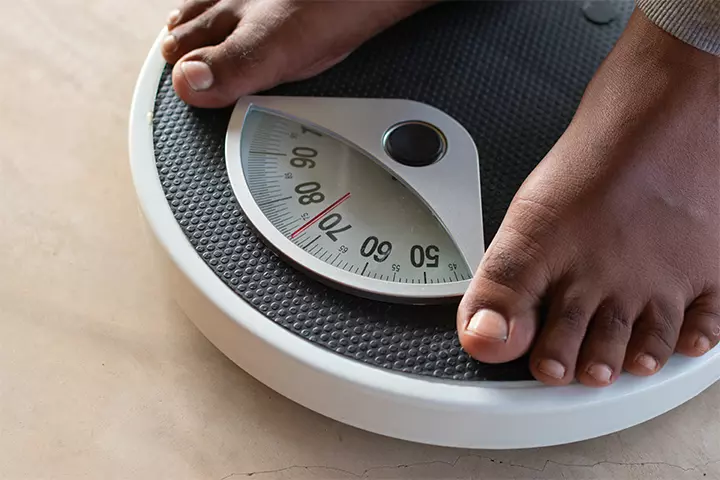
Image: IStock
Teens are screened for overweight and obesity through the measurement of body mass index (BMI), which is a person’s body weight (kilograms) divided by the square of their height (meters). BMI interpretation for children and teens differs from those of adults. The doctor may take into consideration the teen’s height, weight, and gender before plotting their BMI on a chart, which indicates various percentiles. These percentiles are calculated from the CDC growth charts based on national survey data (6). You may read more about teenage obesity here.
Frequently Asked Questions
1. Will I lose weight if I stop eating?
Yes. Fasting can lead to weight loss due to reduction in calories. For short durations, it has been shown to lower the risk of cardiovascular diseases that may occur due to obesity, hypertension, dyslipidemia, and diabetes (7). But long-term fasting can harm a person’s physical and mental well-being. It can cause nutritional deficiencies affecting bodily functions if a nutrient-dense diet and hydration are not focused upon (8).
2. How much weight can a teenager lose in a month?
Slow and steady weight loss is healthier than rapid weight loss. CDC recommends losing around 1-2 lbs (0.5- 1kg) a week (9).
3. How old do you have to be to take weight loss pills?
Children older than 12 can use weight loss pills under medical supervision (10). However, t weight-loss supplements must be used only under a doctor’s advice.
Weight loss pills for teens cannot replace the importance of a healthy lifestyle, good diet, and physical exercise. Therefore, doctors may suggest these pills only if you are overweight due to genetic conditions or an underlying issue like an eating disorder. Do not take these pills without a doctor’s recommendation, as they may cause side effects such as diarrhea, dizziness, or abdominal pain. In some cases, they may lead to seizures or strokes. Talk to your healthcare provider about the precautions you should take when taking these pills. A good lifestyle and well-planned fitness regimen, together with weight loss pills, may help you optimize your weight. Healthy weight is essential to maintain positive self-esteem and body image.
Infographic: Yoga For Weight Loss
Yoga has been a promising non-pharmaceutical alternative to managing body weight. Yoga not only helps reduce weight but provides numerous benefits to physical and mental health, which is particularly important during the teenage years. The infographic below lists some effective yoga poses or asanas to help teenagers manage weight. Illustration: Momjunction Design Team
Illustration: Teen Weight-Loss Pills: Efficacy Precautions & Side Effects

Image: Dall·E/MomJunction Design Team
Are restrictions or bans necessary for diet pills? Watch this video debate on the regulation of diet pills for teenagers, which highlights the potential hazards linked to their usage.
References
- Prescription Medications to Treat Overweight & Obesity.
https://www.niddk.nih.gov/health-information/weight-management/prescription-medications-treat-overweight-obesity - Are Over-the-Counter Diet Pills and Muscle-Building Dietary Supplements Safe? Research Studies Show the Answer Is “No”.
https://hsph.harvard.edu/research/eating-disorders-striped/ - Weight-Loss Medicines.
https://www.mottchildren.org/health-library/abq5186 - Beware hidden ingredients in miracle pills.
https://podcasts.ufhealth.org/beware-hidden-ingredients-in-miracle-pills/ - Kaylee Woodard et al. (2020) Medications for the treatment of obesity in adolescents.
https://journals.sagepub.com/doi/10.1177/2042018820918789 - BMI Frequently Asked Questions; CDC
https://www.cdc.gov/bmi/faq/?CDC_AAref_Val=https://www.cdc.gov/healthyweight/assessing/bmi/childrens_bmi/about_childrens_bmi.html - Tiffany A. DONG et al.; (2020); Intermittent Fasting: A Heart Healthy Dietary Pattern?
https://www.ncbi.nlm.nih.gov/pmc/articles/PMC7415631/ - Nutrition & Health Info Sheets for Health Professionals – Intermittent Fasting
https://nutrition.ucdavis.edu/outreach/nutr-health-info-sheets/pro-intermittent-fasting#:~:text=Individuals%20participating%20in%20intermittent%20fasting,foods%20during%20the%20eating%20period. - Steps for Losing Weight.
https://www.cdc.gov/healthy-weight-growth/losing-weight/?CDC_AAref_Val=https://www.cdc.gov/healthyweight/losing_weight/index.html - FDA approves weight management drug for patients aged 12 and older
https://www.fda.gov/drugs/news-events-human-drugs/fda-approves-weight-management-drug-patients-aged-12-and-older
Community Experiences
Join the conversation and become a part of our nurturing community! Share your stories, experiences, and insights to connect with fellow parents.
Read full bio of Dr. Supriya Mahajan
Read full bio of Swati Patwal
Read full bio of Rohit Garoo
Read full bio of Dr. Joyani Das








